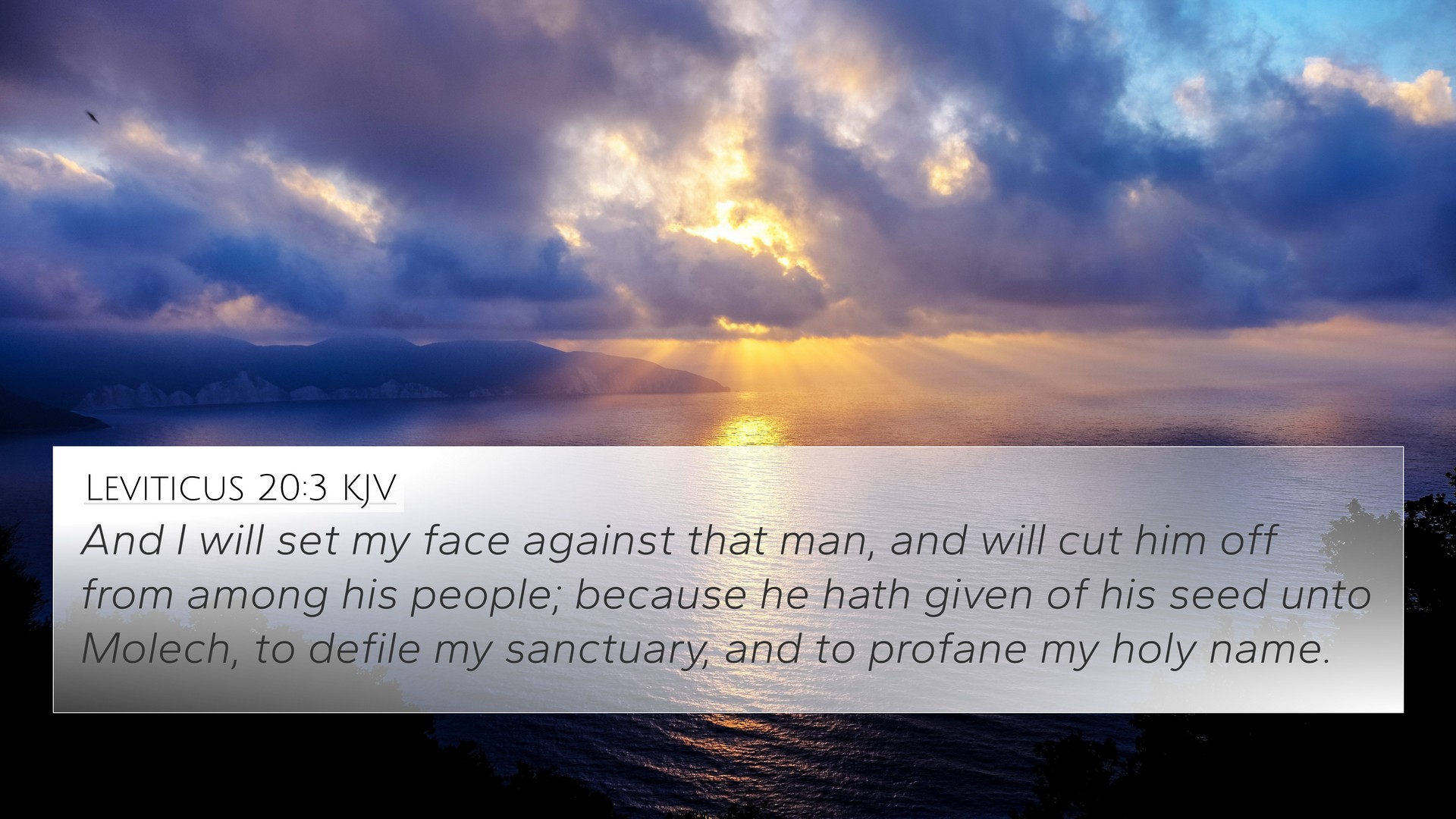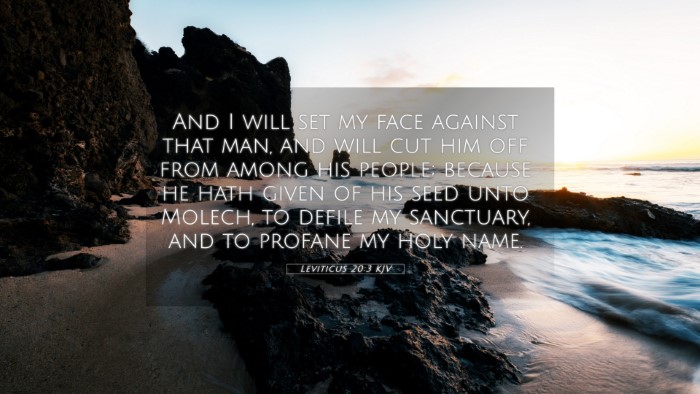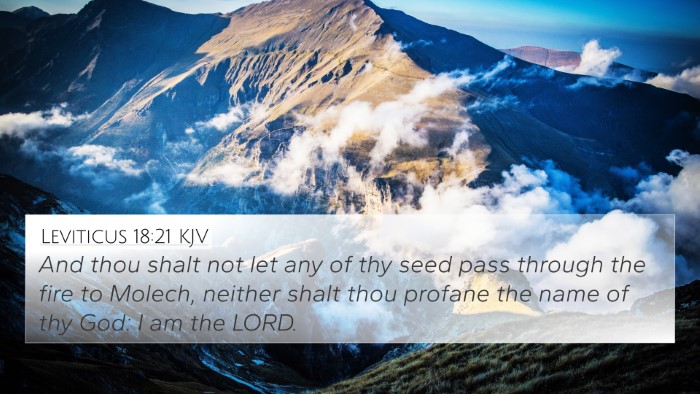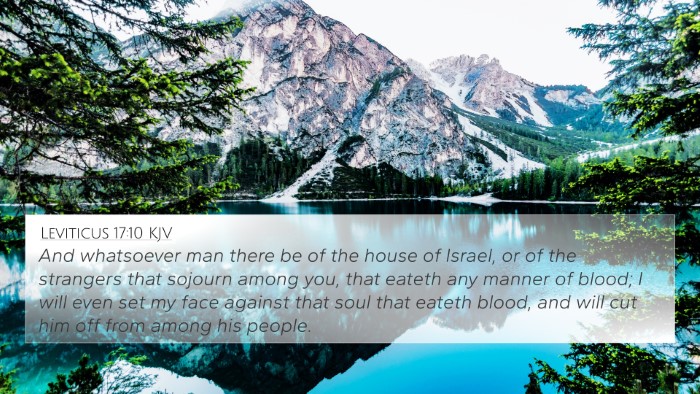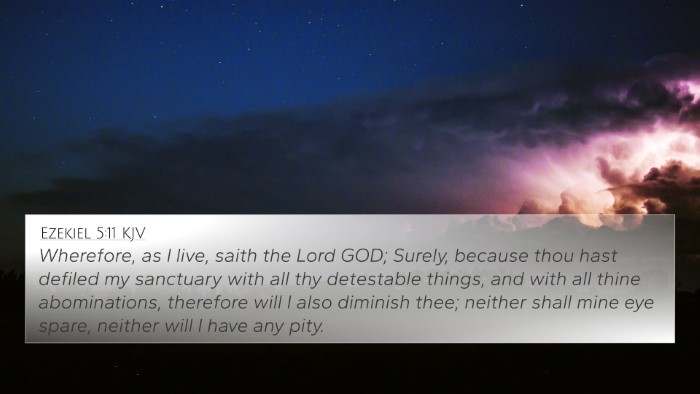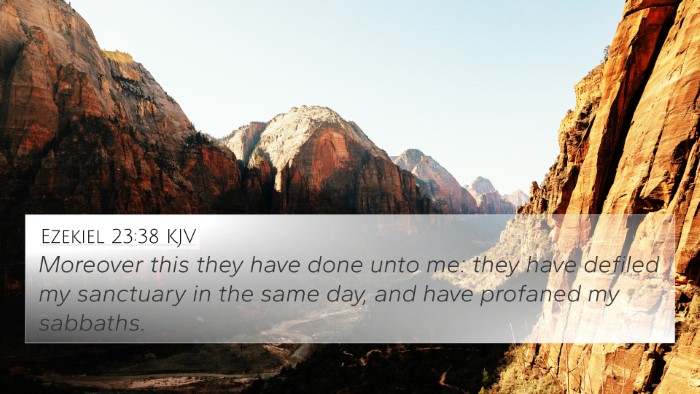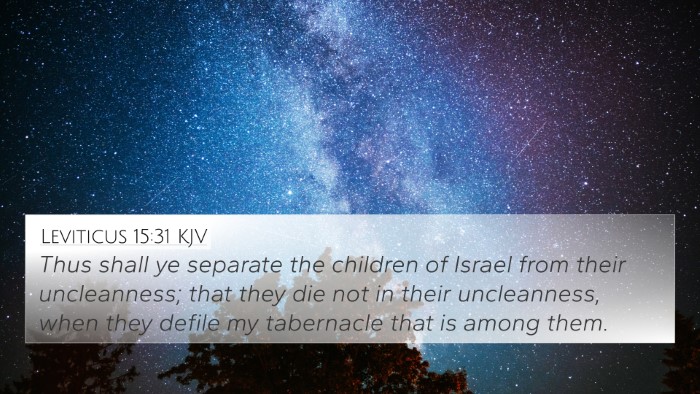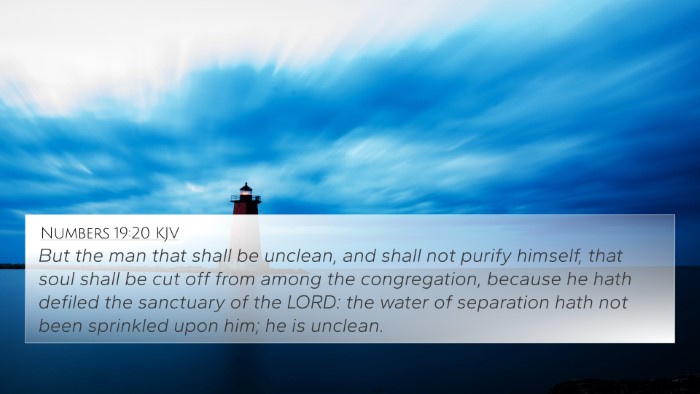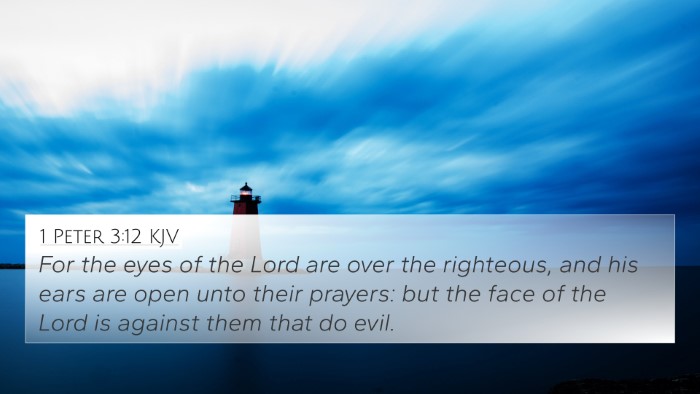Understanding Leviticus 20:3
Verse: "And I will set my face against that man, and will cut him off from among his people; because he hath given of his seed unto Molech, to defile my sanctuary, and to profane my holy name." (Leviticus 20:3)
Meaning and Context
The verse Leviticus 20:3 is situated within a larger framework of laws given to the Israelites, primarily concerning the holiness required of God’s people. It addresses the grievous sin of child sacrifice to Molech, a pagan deity, which was abhorrent in the sight of God.
Historical Context: In ancient Israel, the worship of Molech involved the sacrifice of children, a practice that was strictly condemned by God. This passage emphasizes the severe consequences of such acts, illustrating the seriousness with which God views the holiness of His people and their worship practices.
Commentary Insights
- Matthew Henry: Henry notes the alarming nature of turning towards such idolatrous practices and highlights God's just response. He elaborates that God's grace is not to be presumed upon when sin is willfully pursued, as idolatry corrupts the heart and profanes the holy covenant.
- Albert Barnes: Barnes emphasizes the importance of being set apart as a holy nation. He discusses the cultural and theological implications of engaging in practices that fundamentally contradict the laws of God, warning against the societal acceptance of sin and the consequences that follow.
- Adam Clarke: Clarke comments on God's personal involvement ("I will set my face against") indicating a direct action on His part against such transgressions. He stresses how this penalty reflects God's unwavering commitment to the sanctity of His name and His people.
Thematic Connections
This verse resonates with multiple themes throughout Scripture, underlining God's zeal for holiness and justice. The following cross-references amplify its meaning:
- Deuteronomy 12:31: "Thou shalt not do so unto the LORD thy God; for every abomination to the LORD, which he hateth, have they done unto their gods..." - Highlights God's hatred for pagan practices.
- Leviticus 18:21: "And thou shalt not let any of thy seed pass through the fire to Molech..." - Direct command against child sacrifice.
- Jeremiah 32:35: "And they built the high places of Baal, which are in the valley of the son of Hinnom, to cause their sons and their daughters to pass through the fire unto Molech..." - Warning against the sins of the people.
- Ezekiel 16:20-21: "Moreover thou hast taken thy sons and thy daughters, whom thou hast borne unto me, and these hast thou sacrificed unto them to be devoured..." - Condemnation of child sacrifice.
- Leviticus 10:3: "Then Moses said unto Aaron, This is it that the LORD spake, saying, I will be sanctified in them that come nigh me..." - Reinforcement of holiness in worship.
- 1 Corinthians 10:21: "Ye cannot drink the cup of the Lord, and the cup of devils: ye cannot be partakers of the Lord's table, and of the table of devils." - New Testament exhortation to avoid idolatry.
- Romans 12:1: "I beseech you therefore, brethren, by the mercies of God, that ye present your bodies a living sacrifice, holy, acceptable unto God..." - Calls for our lives to be holy offerings to God.
Cross-Referencing Biblical Texts
This verse provides a gateway for cross-referencing throughout the Bible, linking the themes of divine justice, holiness, and the dire consequences of sin. Tools for Bible cross-referencing help to explore these connections deeply:
- Utilize a Bible concordance to find key themes and their occurrences across scripture.
- Engage in Bible cross-reference guides to uncover inter-connected stories and teachings.
- Apply cross-reference Bible study methods to see thematic continuities from the Old Testament to the New Testament.
Concluding Thoughts
Leviticus 20:3 serves as a stark reminder of the holiness of God and the severity of engaging in practices that defile that holiness. By understanding the interconnectedness of scripture through cross-referencing, believers are better equipped to grasp the full scope of biblical teachings about idolatry, sacrifice, and divine retribution.
